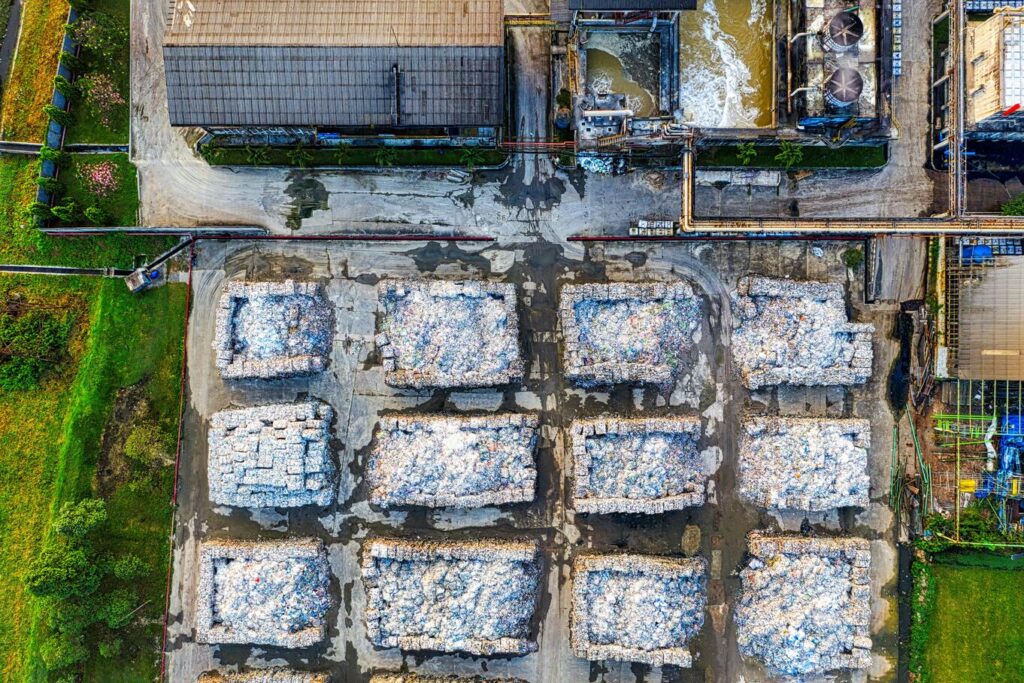The global discourse on plastic recycling has reached a critical juncture, with Europe emerging as a key player in shaping the future of plastic management. As concerns over plastic pollution and its environmental impact continue to escalate, both on a continental and global scale, the need for decisive action and innovative solutions has never been more urgent.
The European Perspective:
Europe has long been at the forefront of plastic recycling efforts, with ambitious targets and regulations aimed at achieving a circular economy for plastics. Despite these commendable efforts, challenges persist. Recycling rates in Europe currently hover around 30%, highlighting the imperative for more efficient recycling processes and infrastructure. This figure is on the rise compared to previous years. In fact, as recently as 2019, the recycling rate in Europe was around 20%. It is of utmost importance to monitor these advancements in the field of plastic recycling in Europe, as the PLASTICE project is also playing its part in this effort to drive change.
According to EuRIC, since 1950, annual global plastic production has surged from 2 million tonnes to a staggering 380 million tonnes, with projections indicating a potential doubling by 2035 and nearly quadrupling by 2050. Concurrently, global plastic consumption has witnessed a more than twentyfold increase in the last half-century, with estimates suggesting it may double once more by 2034 without decisive action.
Transitioning towards a circular economy for plastics becomes increasingly crucial in light of these trends. Furthermore, European nations grapple with a pressing challenge: managing the escalating volumes of plastic waste in a manner that is both circular and sustainable.
The Global Challenge:
Beyond Europe, plastic recycling remains a global concern, with several key issues coming to the forefront. The Organisation for Economic Co-operation and Development (OECD) has unveiled a groundbreaking report titled “The Global Plastics Outlook: Economic Drivers, Environmental Impacts and Policy Options.” Some of the key findings in the report were the following:
Current plastic management falls short of a circular model. Global plastic production and waste have more than doubled since 2000. Globally, only 9% of plastic waste is recycled, while 19% is incinerated, and nearly 50% goes to landfills. The rest is disposed of irresponsibly. COVID-19 amplified single-use plastic waste despite a 2.2% drop in overall plastic use in 2020. The surge in protective gear and single-use plastics worsened littering.
Mismanaged plastic waste, including macroplastics and tiny microplastics, poses ecological and human risks. Substantial plastic accumulations exist in rivers and oceans, with ongoing leakage. The plastic lifecycle contributes significantly to greenhouse gas emissions, primarily during production and fossil fuel conversion, accounting for 90% of emissions. Closing material loops could reduce this footprint.
This comprehensive analysis delves into the entire lifecycle of plastics, addressing critical facets like production, consumption, waste management, recycling, disposal, leakage, and greenhouse gas emissions. The report highlights the pressing need for a shift towards circular approaches to plastic management.
Moving Forward:
The urgency of addressing plastic pollution and advancing plastic recycling is clear. Europe’s role in spearheading recycling initiatives, along with global efforts, will determine the path forward.
As governments, industries, and communities grapple with this complex issue, the call to action is resounding: it’s time to reevaluate our relationship with plastic and work collectively towards a more sustainable, circular, and responsible future.



